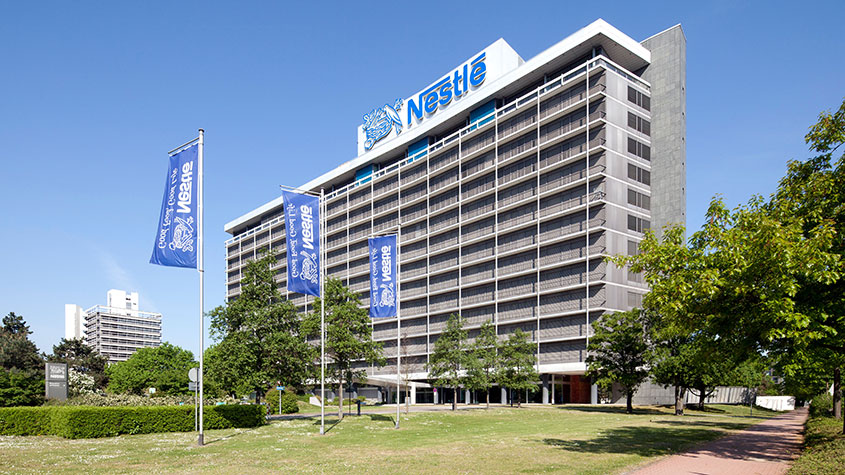Three stocks to provide income and growth in good times and bad
Professional investor Matthew Page of the Guinness Global Innovators fund picks three resilient stocks that should pay predictable dividends that grow throughout the economic cycle.


Get the latest financial news, insights and expert analysis from our award-winning MoneyWeek team, to help you understand what really matters when it comes to your finances.
You are now subscribed
Your newsletter sign-up was successful
Want to add more newsletters?

Twice daily
MoneyWeek
Get the latest financial news, insights and expert analysis from our award-winning MoneyWeek team, to help you understand what really matters when it comes to your finances.

Four times a week
Look After My Bills
Sign up to our free money-saving newsletter, filled with the latest news and expert advice to help you find the best tips and deals for managing your bills. Start saving today!
Central banks around the world are raising interest rates to temper demand and counteract persistently high inflation. In this situation it makes sense to look for companies whose revenues and growth are relatively insensitive to the economic cycle – those with products or services that are always in demand.
One good way of finding these is to look for firms that consistently generated a high return on capital (a key gauge of profitability) over the last economic cycle. As the outlook for inflation and interest rates remains uncertain, it is also important to identify businesses with robust balance sheets. Those that meet these criteria often pay nice, predictable dividends that grow throughout the economic cycle.
Life-changing treatments
AbbVie (NYSE: ABBV) develops drugs related to immunology, oncology, virology, and neuroscience. The company, which was spun-off from Abbott Laboratories in 2013, generates 60% of revenue from its blockbuster arthritis drug, Humira, but it also has a strong pipeline of next-generation immunology and blood-cancer drugs.
MoneyWeek
Subscribe to MoneyWeek today and get your first six magazine issues absolutely FREE

Sign up to Money Morning
Don't miss the latest investment and personal finances news, market analysis, plus money-saving tips with our free twice-daily newsletter
Don't miss the latest investment and personal finances news, market analysis, plus money-saving tips with our free twice-daily newsletter
The company’s mature drugs have expiring patents, but manufacturing and dosing complexities limit competition. AbbVie has also made moves to diversify revenue via the acquisition of Allergan – the maker of medical and cosmetic aesthetics products, including Botox.
With post-acquisition operating cash flows of close to $20bn, AbbVie is well placed to continue financing dividends, share buybacks, debt payments and further deals. In fact, since its spin-off, the company has grown its dividend by an annualised 13%.
A consumer-goods giant
Nestlé (Switzerland: NESN), the world’s largest food and beverage company by revenue, has over 2,000 brands, 34 of which have annual sales greater than $1bn. These include Nescafé, KitKat, Smarties, and Milo. Well-known brands, strong existing relationships with retailers and economies of scale provide Nestlé with an enduring competitive advantage, while good product diversification and geographical reach ensure low cyclicality for its goods.
Nestlé boasts a high steady return on capital and a strong balance sheet with low leverage; this has enabled it to grow its dividend for the past 26 years. Recently the business has been undergoing strategic portfolio adjustments to focus on higher growth and more profitable categories.
Topping up Japan’s health system
Aflac (NYSE: AFL) is the top US-based provider of supplemental health and life insurance to individuals in the US and Japan. Some 70% of revenue is generated via Aflac Japan, where customers purchase medical-insurance policies to fill gaps in the national health insurance system. The company reports that 95% of its Japanese policyholders renew their policies, with the average customer remaining with Aflac for 20 years. This provides recurring revenues and cash flows, which have grown over time owing to the ageing population.
The deregulation of Japan’s financial system has allowed Aflac to sell its policies through banks or the post office, where Japanese customers are used to conducting financial transactions. The company’s strong balance sheet – which has little debt – has supported 39 consecutive years of dividend growth.
Get the latest financial news, insights and expert analysis from our award-winning MoneyWeek team, to help you understand what really matters when it comes to your finances.
Matthew is manager of the Guinness Global Equity Income strategy fund and the Guinness Global Innovators strategy fund.
-
 MoneyWeek Talks: The funds to choose in 2026
MoneyWeek Talks: The funds to choose in 2026Podcast Fidelity's Tom Stevenson reveals his top three funds for 2026 for your ISA or self-invested personal pension
-
 Three companies with deep economic moats to buy now
Three companies with deep economic moats to buy nowOpinion An economic moat can underpin a company's future returns. Here, Imran Sattar, portfolio manager at Edinburgh Investment Trust, selects three stocks to buy now
-
 Halifax: House price slump continues as prices slide for the sixth consecutive month
Halifax: House price slump continues as prices slide for the sixth consecutive monthUK house prices fell again in September as buyers returned, but the slowdown was not as fast as anticipated, latest Halifax data shows. Where are house prices falling the most?
-
 Rents hit a record high - but is the opportunity for buy-to-let investors still strong?
Rents hit a record high - but is the opportunity for buy-to-let investors still strong?UK rent prices have hit a record high with the average hitting over £1,200 a month says Rightmove. Are there still opportunities in buy-to-let?
-
 Pension savers turn to gold investments
Pension savers turn to gold investmentsInvestors are racing to buy gold to protect their pensions from a stock market correction and high inflation, experts say
-
 Where to find the best returns from student accommodation
Where to find the best returns from student accommodationStudent accommodation can be a lucrative investment if you know where to look.
-
 The world’s best bargain stocks
The world’s best bargain stocksSearching for bargain stocks with Alec Cutler of the Orbis Global Balanced Fund, who tells Andrew Van Sickle which sectors are being overlooked.
-
 Revealed: the cheapest cities to own a home in Britain
Revealed: the cheapest cities to own a home in BritainNew research reveals the cheapest cities to own a home, taking account of mortgage payments, utility bills and council tax
-
 UK recession: How to protect your portfolio
UK recession: How to protect your portfolioAs the UK recession is confirmed, we look at ways to protect your wealth.
-
 Buy-to-let returns fall 59% amid higher mortgage rates
Buy-to-let returns fall 59% amid higher mortgage ratesBuy-to-let returns are slumping as the cost of borrowing spirals.
